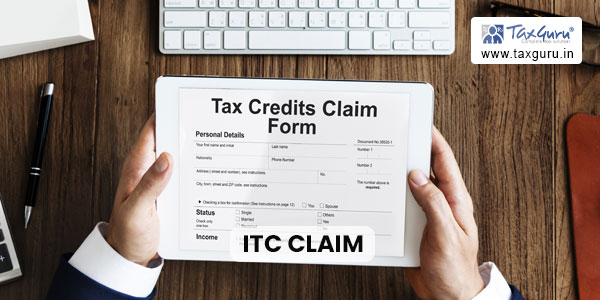Citation
Issue involved
Whether the second Appellate Authority as well as the High Court were justified in allowing the Input Tax Credit (ITC) wherein invoices were produced and payments made online for purchases made from sellers who were not registered/failed to pay tax?
Facts of the case
1. Respondent purchased green coffee bean from dealers for the purposes of further sale in exports and in domestic market.
2. Input Tax Rebate was claimed by the respondent for Assessment Year 2010-2011.
3. The Assessing officer (“AO”) found irregularities in rebate and asked and reviewed accounts, books and tax invoices. Based on such review, disallowed ITC to the extent of Rs. 10.52 lacs because of the reason that:
a. Some sellers were found to be de-registered.
b. Some did not file taxes.
c. Others outrightly denied turnover nor paid taxes.
4. The findings of fact recorded by the AO came to be confirmed by the first Appellate Authority.
5. The Tribunal allowed the second appeal treating it as genuine transaction and Karnataka High Court dismissed the revisions application relying upon its earlier decision in the case of M/s Tallam Apparels (supra), allowing ITC since invoices produced and payments made online.
Contention by Respondent/Company
1. Burden of proof cast under Section 70 of the KVAT Act, 2003 has been discharged by producing the genuine invoices and the payment through cheques.
2. If at all it is found that a tax is not paid by the seller, the same can be recovered from the seller.
3. ITC should be allowed since burden discharged under Section 70.
4. Registration of the dealer and online payments were never disputed.
5. Neither the KVAT Act nor the Rules provide for any other document or any other obligation, which are statutorily required for the purposes of establishing the claim for seeking refund towards Input Tax Credit.
6. Only requirement of law – selling dealer is a registered dealer and has issued the tax invoice in compliance with the requirement of the KVAT Act and the Rules made thereunder.
7. ITC cannot be denied only because the selling dealer fails to discharge his obligation under the KVAT Act.

Contention by Appellant/Revenue
1. The High Court has not properly appreciated that the AO doubted the genuineness of the transactions/sales and that the sale transactions were only paper transactions.
2. The registration of the sellers were cancelled and nothing was on record that any tax was paid by the seller.
3. Respondent failed to discharge burden of proving the transaction.
4. For the purposes of Section 70, the burden required to be discharged is slightly higher than showing financial transfers and should show actual movement of goods.
5. Mere production of invoices or even payment to the seller by cheque cannot be said to be sufficient and may not be said to discharging the burden to claim Input Tax Credit – as per Section 70.
6. High Court erred in appreciating the fact that revenue cannot recover from the seller who is not registered or who has filed ‘NIL’ returns, thereby denying sale.
Observations of the Supreme Court
1. As per Section 70, burden of proving that the ITC claim is correct lies upon the purchasing dealer claiming such ITC.
2. Mere production of the invoices or the payment made by cheques is not enough.
3. It shall be proved by furnishing the name and address of the selling dealer, details of the vehicle which has delivered the goods, payment of freight charges, acknowledgement of taking delivery of goods, tax invoices and payment particulars etc.
4. Actual physical movement of goods to be established.
5. In cases where sellers were not registered or has not paid taxes, the concerned respondent has not produced any further supporting material other than invoice and online payment.
6. Producing the invoices as per Rules 27 and 29 of the KVAT Rules 2005 can be said to be proving one of the documents, but not all the documents to discharge the burden to prove the genuineness of the transactions.
Conclusion by the Supreme Court
1. The AO was absolutely justified in denying the ITC, which was confirmed by the first Appellate Authority.
2. Both, the second Appellate Authority as well as the High Court have materially erred in allowing the ITC despite the concerned respondent failed to prove the genuineness of the transactions and failed to discharge the burden of proof as per section 70 of the KVAT Act, 2003.
3. It is held that unless and until the respondent discharges the burden cast under Section 70 of the KVAT Act, 2003 and proves the genuineness of the transaction/purchase and sale by producing the aforesaid materials, such respondent shall not be entitled to Input Tax Credit.
4. The orders passed by the Assessing Officer denying the ITC to the concerned respondent, confirmed by the first Appellate Authority are hereby restored.





